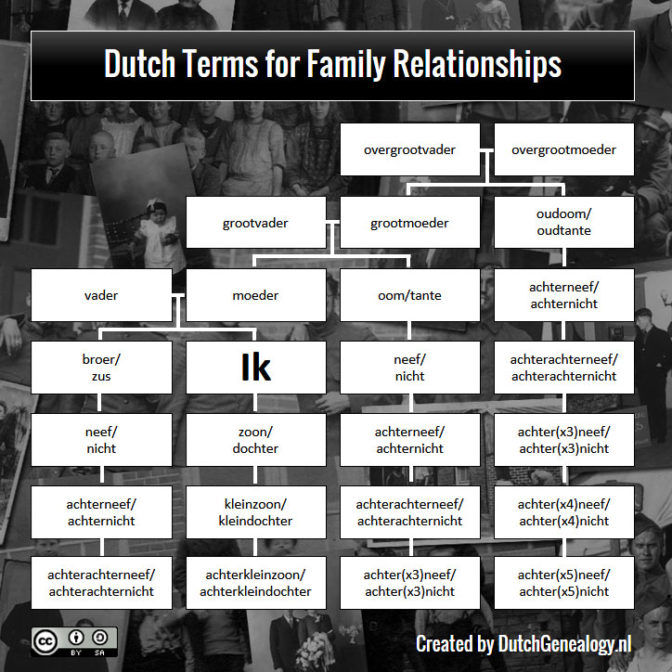In Dutch, the word neef can mean either nephew or male cousin, while the word nicht can mean either niece or female cousin.
Automatic translators sometimes translate the terms with nephew and niece only, which can lead you to the wrong conclusion about family relationships.



I enjoy your posts. Keep them coming
In spoken Dutch, how do I distinguish between my aunts children (cousins) and my brothers children (niece & nephew)
We don’t have separate words for those relationships. You can just say, “de kinderen van mijn tante” or “de kinderen van mijn broer” to clarify. Some people clarify by saying “oomzegger” [uncle-sayer] or “tantezegger” [aunt-sayer].
Why does the Dutch language not distinguish between nieces and cousins by using the same word ? What is the reason for this? Thank you.
Why does the English language use the same word for a male and female cousin, while it has gender-specific words for all other family relationships?
Each language attaches labels/words to conceptual structures. The mapping from conceptual structure to label is not the same in different languages. Dutch chooses to address the difference in gender but not in generation while English does it the other way around. There is no rule that all languages should have the same mapping. Dutch does not have a word for “siblings” either, just for brother (broer) or sister (zus).